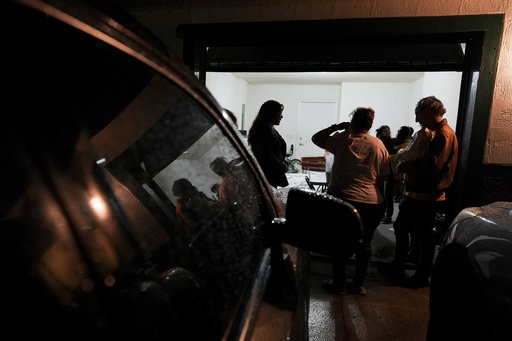
Homestead, Florida, has become a focal point for immigrant families seeking legal guardianship for their children amidst fears of deportation. The complications began the day before the inauguration of Donald Trump, when several families approached Nora Sandigo, asking her to act as a guardian. They are now requesting that she come to their homes to finalize essential paperwork, largely due to heightened anxiety surrounding immigration enforcement and the desire to steer clear of public spaces where they might be apprehended.
As families become increasingly cautious, many immigrants residing illegally in the U.S. have shifted their routines significantly. They avoid visiting advocates like Sandigo and remain close to home, fearing an Immigration and Customs Enforcement (ICE) crackdown following Trump’s aggressive immigration policies, which include promises of mass deportations and the dismantling of programs that previously offered pathways for legal residency. Sandigo reports receiving a surge of inquiries from concerned immigrant parents across the nation, leading her to conduct home visits. She has already signed crucial documents allowing her to manage children’s education and health decisions in case of deportation.
“Many are expressing deep fears about simply being outside,” Sandigo shared, a 59-year-old mother of two living in the south Miami area. “They are now requesting my presence at their homes instead of visiting me.”
In the wake of Trump’s inauguration, over 8,000 undocumented immigrants have reportedly been detained, with ICE averaging nearly 800 arrests daily in the initial week of the new administration—an increase compared to the average arrests during the final year of the previous administration. The number of daily arrests has since ceased to be publicly reported. In Homestead, a community populated by many immigrants from Mexico and Central America, some residents are avoiding grocery stores, opting for neighbors to run their errands instead. In a dramatic shift, people no longer congregate outside places like Home Depot in search of work, and attendance at local churches has also declined.
Elisaul Velazco, a clothing store owner, remarked on the significant downturn in business, noting, “The situation is paralyzed. Sales have plummeted by 60%.” Given a history of preparing immigrant families for potential separation, Sandigo is now taking proactive measures by visiting parents in their homes to finalize the necessary arrangements.
During a recent visit to four different homes, Sandigo processed documentation for over 20 children. Some of these children were born in the United States and are citizens. The legal powers granted through this documentation enable Sandigo to make vital decisions, though they do not confer full guardianship or parental rights. Many parents find themselves in a state of worry, fearing that failure to name a legal guardian could lead to their children entering foster care or being adopted by other families.
One poignant case involved Julia, a Guatemalan mother, who hesitated before opening her door out of fear of being discovered. She revealed that her husband had recently been detained while travelling for work, highlighting the dangers immigrant families face. Julia conducted her family preparations with deep anxiety, recalling how her former husband had been deported eight years prior, leaving her to care for their two American children alone.
“I don’t want my children taken from me. If anything were to happen to me, I want them to stay with someone I trust,” she explained to Sandigo as she signed the power of attorney documents.
In another home, Albertina, a 36-year-old Mexican mother, cradled her infant as she articulated her fears and her hopes for her six children should she be deported. With reservations about her children being forced back to Mexico, she expressed a desire for Sandigo to care for her two oldest daughters while sending the others back home.
Sandigo, who herself fled Nicaragua during her youth and became a U.S. citizen, has devoted herself to aiding immigrant families for over 15 years. She has served as a guardian to approximately 2,000 children, many of whom have entered her life after their parents were deported. Sandigo’s deep-rooted empathy for the families stems from her own experiences, driving her commitment to help those in need navigate their difficult circumstances. “I feel that it is my duty to offer support and love to those who are suffering,” she remarked.

